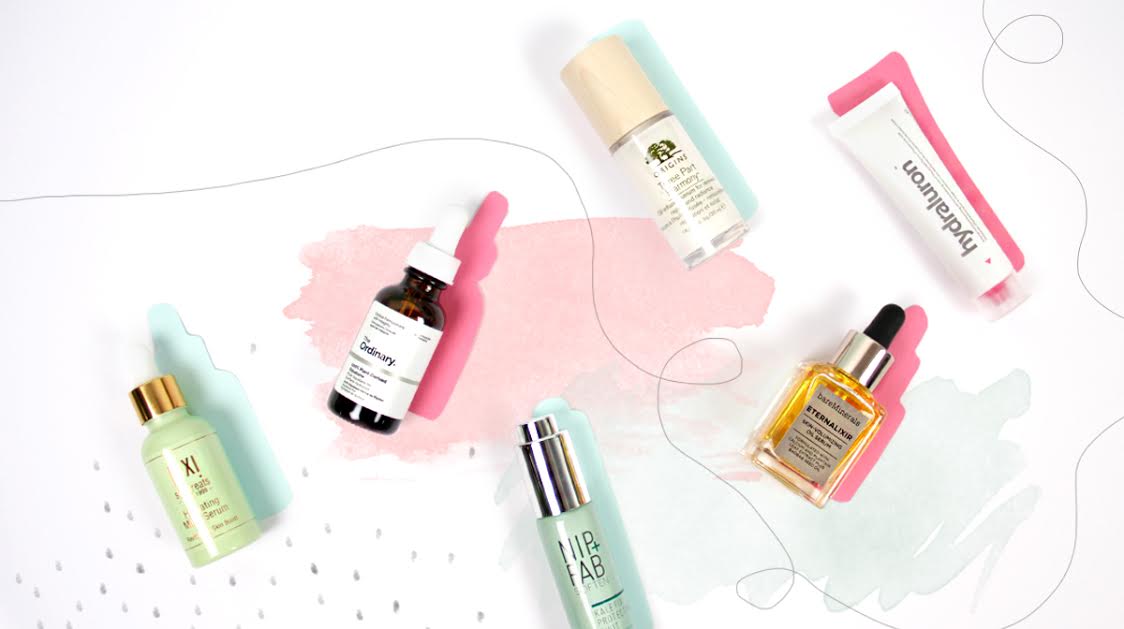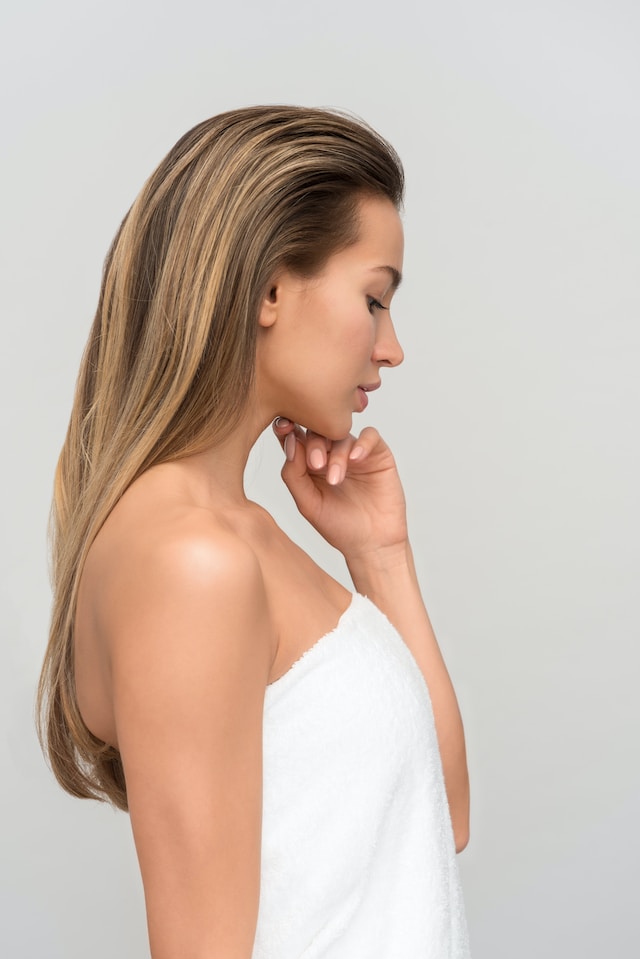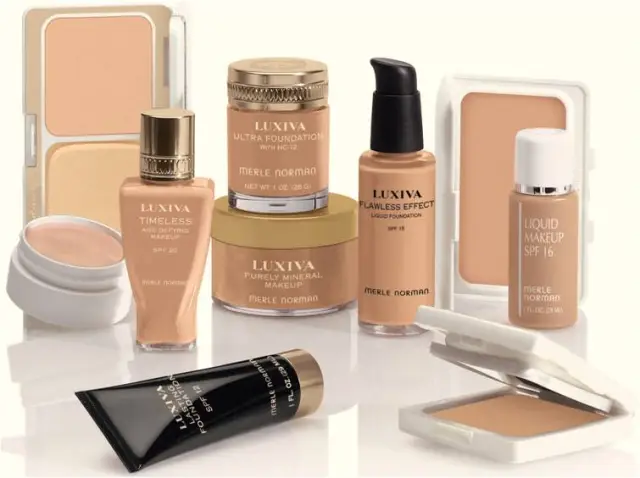Serums are concentrated skincare products that contain a high amount of active ingredients aimed at addressing specific skin concerns. There are various types of serums available, each formulated to target different skin issues. Here are some common types of serums and their uses:
-
- Hydrating Serums: Uses: Provides deep hydration for all skin types, especially dry and dehydrated skin.
Price Range: $15 – $50
Side Effects: Rare, but potential irritation if the serum contains fragrances or sensitizing ingredients. - Vitamin C Serums: Uses: Brightens skin, evens tone, and protects against UV damage and pollution.
Price Range: $20 – $80
Side Effects: Mild irritation in sensitive skin types, especially at higher concentrations. - Retinol Serums: Uses: Reduces fine lines, wrinkles, acne scars, and promotes cell turnover.
Price Range: $20 – $100
Side Effects: Dryness, redness, and peeling, particularly during the initial adjustment period. Not recommended for pregnant or breastfeeding individuals. - Niacinamide Serums: Uses: Regulates sebum, minimizes pores, improves texture, and reduces redness.
Price Range: $15 – $40
Side Effects: Generally well-tolerated, but potential for mild irritation in some individuals. - Hyaluronic Acid Serums: Uses: Deeply hydrates and plumps the skin, suitable for all skin types.
Price Range: $15 – $50
Side Effects: Rare, but may cause minor irritation in sensitive skin types. - Peptide Serums: Uses: Supports collagen production, firms and tightens the skin.
Price Range: $25 – $70
Side Effects: Generally well-tolerated, but potential for irritation in sensitive skin. - Brightening Serums: Uses: Exfoliates and brightens skin, addressing dullness and uneven tone.
Price Range: $20 – $70
Side Effects: Increased sensitivity to sunlight, possible irritation if used too frequently or in combination with other exfoliating products. - Anti-Acne Serums: Uses: Reduces acne breakouts, unclogs pores, and minimizes inflammation.
Price Range: $15 – $40
Side Effects: Dryness, peeling, and initial purging may occur. Some products may cause irritation, so patch test first. - Anti-Aging Serums: Uses: Addresses wrinkles, fine lines, and loss of firmness, improving overall texture.
Price Range: $30 – $100
Side Effects: Mild irritation or sensitivity, especially in higher concentrations. - Barrier Repair Serums: Uses: Strengthens the skin’s protective barrier, preventing moisture loss.
Price Range: $20 – $60
Side Effects: Rare, but potential for irritation in sensitive skin types. - Lash Serums: Uses: Promotes eyelash growth and health for longer, stronger lashes. Price Range: $30 – $100
Side Effects: Possible eye irritation or redness, rare darkening of eyelid skin. Use with caution and follow instructions carefully. - Exfoliating Serums: Uses: Removes dead skin cells, improves skin texture, and reduces pore congestion.
Price Range: $20 – $60
Side Effects: Increased sensitivity, redness, and peeling if used excessively or without sunscreen protection. - Soothing Serums: Uses: Calms and soothes irritated or sensitive skin, reducing redness and inflammation.
Price Range: $20 – $50
Side Effects: Rare, but potential for irritation in extremely sensitive skin types. - Firming Serums: Uses: Improves skin elasticity, minimizing sagging and promoting a more youthful appearance.
Price Range: $30 – $80
Side Effects: Generally well-tolerated, but potential for irritation in sensitive skin. - Pigment-Correcting Serums: Uses: Targets hyperpigmentation and dark spots, evening out skin tone.
Price Range: $25 – $70
Side Effects: Possible irritation, increased sensitivity to sunlight if not used with sunscreen. - Oil-Control Serums: Uses: Manages excess oil production and shine, helps prevent breakouts.
Price Range: $15 – $40
Side Effects: Potential dryness or irritation, especially if used with other drying products.
- Hydrating Serums: Uses: Provides deep hydration for all skin types, especially dry and dehydrated skin.
Remember that individual skin types and concerns can vary, so it’s important to choose a serum that aligns with your specific needs. When introducing a new serum into your skincare routine, consider performing a patch test first to check for any adverse reactions, and always follow the manufacturer’s guidelines for application. If you’re uncertain about which serum to use, consulting a dermatologist can provide personalized recommendations based on your skin’s needs.
FAQ’s About Serums
- When should I apply a serum in my skincare routine? Serums are typically applied after cleansing and toning but before moisturizing. They’re designed to deliver potent ingredients directly to the skin, enhancing the effectiveness of your routine.
- Can I use multiple serums in my routine? Yes, you can layer serums to target different concerns. However, it’s essential to avoid overloading your skin. Layer thinnest to thickest serums and consider consulting a dermatologist for guidance.
- How often should I use a serum? The frequency depends on the serum and your skin’s tolerance. Some serums, like vitamin C or exfoliating serums, might be used daily or a few times a week, while others might be used less frequently.
- Do serums replace moisturizers? Serums and moisturizers serve different purposes. Serums deliver targeted active ingredients, while moisturizers provide hydration and create a protective barrier. It’s recommended to use both for a well-rounded routine.
- Can serums be used on all skin types? Yes, there are serums designed for various skin types. However, it’s crucial to choose serums that match your skin’s needs. Some serums may be more suitable for oily skin, while others are better for dry or sensitive skin.
- Can serums cause skin irritation? Some serums, especially those containing potent ingredients like retinol or acids, can cause irritation, redness, or sensitivity. Always perform a patch test before applying a new serum and gradually introduce it into your routine.
- Can I use a serum if I have sensitive skin? Yes, there are serums formulated for sensitive skin. Look for serums with soothing ingredients like niacinamide or chamomile and avoid those with strong actives that might exacerbate sensitivity.
- Do serums have an immediate effect? While some serums may provide immediate results, most show gradual improvements over time. Consistent use is key to achieving the desired outcomes.
- Can I use serums during the day and at night? Yes, you can use serums both in the morning and evening. Some serums are designed for daytime use, providing antioxidant protection, while others focus on nighttime repair and rejuvenation.
Remember, the effectiveness of serums can vary based on your skin’s unique characteristics and the specific serum you’re using. It’s always a good idea to consult a dermatologist or skincare professional for personalized recommendations based on your skin’s needs and concerns.





